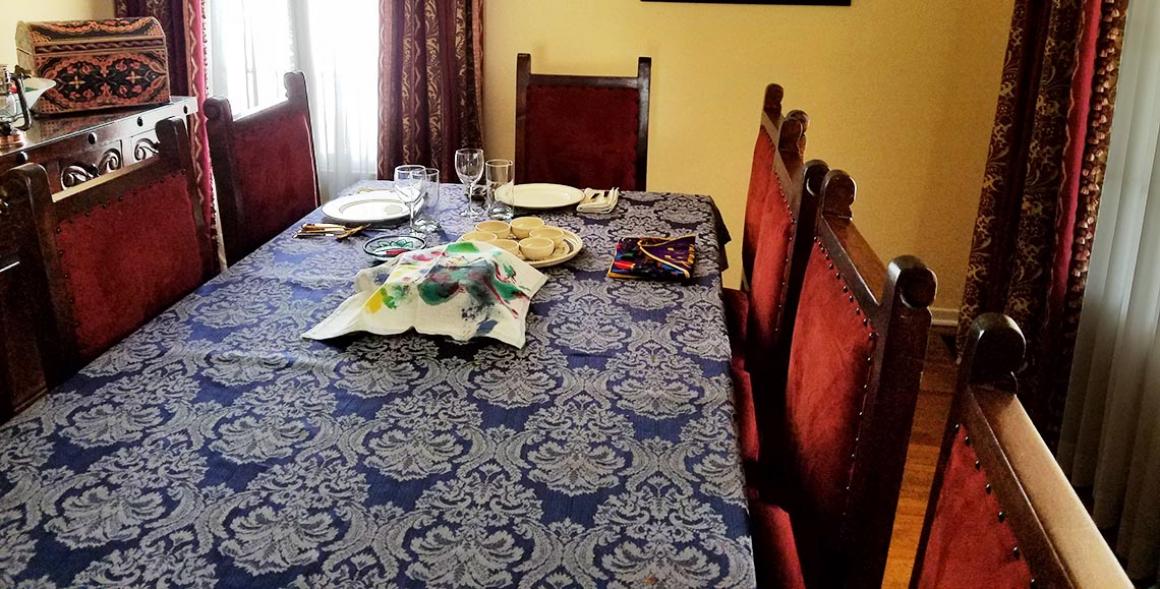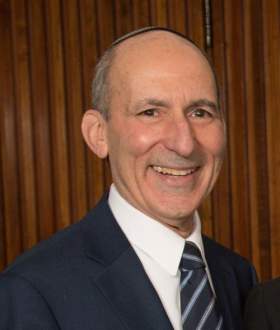
A Seder Like None Other
With Pesach on the near horizon (the evening of April 8), thoughts of this year’s seder loom large. For decades, my family has been blessed to celebrate Pesach with many people around the seder table. Often, I have asked those gathered to share a reminiscence of their most memorable seder. Responses to this question have been wide-ranging, invariably involving interaction with others. Memories of family, close friends or unique settings or circumstances are common motifs. A seder limited by considerations of health to those living in the household is, with rare exceptions, surely a seder experience like none other.
Perhaps this Pesach, as never before, we can understand the anxiety that the plagues we reference at the seder must have evoked among the Egyptians. How severe will it (locusts, hail, etc.) get? How long will it last? What will be the immediate and long term economic impact? How many lives will be lost? These are questions that are all too real, world-wide, at this time. They are questions that are very much on the minds of those who suffer from hunger, disease, dislocation and natural disasters; the current, universal confrontation with Coronavirus cannot but heighten our consciousness of the plight of others.
The seder narrative recalls our ancestors’ journey from the slavery of Egypt, to Sinai and toward the land of Israel. We try, each year, to place ourselves in that story and relate to it as though we ourselves are leaving Egypt. Why is it, though, that slavery and oppression mark the origins of the Israelite nation? Rabbi (Lord) Jonathan Sacks aptly notes that “the Bible gives an unequivocal answer,” to this question. “You shall not do what others have done to you. ‘Do not oppress the stranger, because you know what it feels like to be a stranger: you were strangers in the land of Egypt.’” The charge of our particular narrative is, in short, to be a blessing to others.
The seder, as so many Jewish rituals, begins with a blessing (over the first cup of wine). Samson Raphael Hirsch (1808-1888) observes, in the spirit of Rabbi Sacks’ explanation of the significance of the national origins of the Israelites, that the words “barukh atah,” blessed are You, convey an important Jewish sensibility. Barukh atah does not mean “bless me;” rather, it is a declaration: “may God be blessed through me.” With every berakhah we recite, we affirm our commitment to this mission.
Elijah the prophet is, in Jewish tradition, associated with redemption; hence, his special welcome at the seder. Famously, Elijah, seeking God’s presence, finds God not in a mighty wind that split mountains, and not in an earthquake and not in a fire, but in a “still small voice” (I Kings, 19:12). This year’s seder will likely be less boisterous than others, because of social distancing in response to Coronavirus. Perhaps, as in the case of Elijah, we will – in this year’s more subdued seder, a seder like none other—hear that “still small voice” calling on us as on our ancestors to draw upon our experience to “be a blessing.”
Dr. Gil Graff is the Executive Director of BJE

